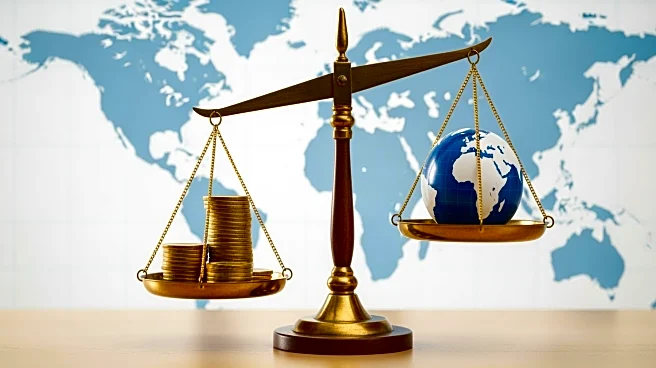What's Happening?
Resource-related disputes between investors and states have surged to a 10-year high, driven by resource nationalism and heightened competition for critical minerals between the U.S. and China. According
to law firm DLA Piper, 32 disputes have been filed with the World Bank's arbitration body in 2025, surpassing last year's total. These disputes involve a range of resources, including oil, gas, gold, uranium, and lithium. The increase in disputes reflects the growing importance of minerals essential for technologies like AI and electric vehicles. Latin America, particularly Colombia, has seen the highest number of disputes, with issues arising from government actions such as the designation of natural reserves and bans on fracking. Africa also faces significant disputes, with countries like the Democratic Republic of Congo being central due to their rich mineral reserves.
Why It's Important?
The rise in resource disputes highlights the strategic importance of critical minerals in the global economy, particularly as countries transition to renewable energy and advanced technologies. The competition for these resources is intensifying geopolitical tensions, especially between major powers like the U.S. and China. For emerging economies, controlling mineral resources is crucial for economic development, but it also poses challenges in balancing investor interests and national sovereignty. The disputes underscore the need for clear regulatory frameworks and international cooperation to manage resource extraction and investment. The outcomes of these disputes could influence global supply chains, investment flows, and the geopolitical landscape.
Beyond the Headlines
The surge in resource disputes also raises ethical and environmental concerns. As countries assert control over mineral resources, there is a risk of neglecting environmental protections and indigenous rights. The push for resource nationalism may lead to conflicts over land use and environmental degradation. Additionally, the legal battles over resource control could set precedents for future international arbitration cases, affecting how countries and investors negotiate resource access and management. The situation calls for a balanced approach that considers economic, environmental, and social factors in resource governance.











